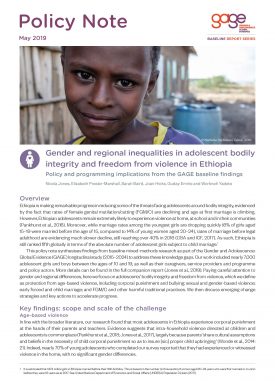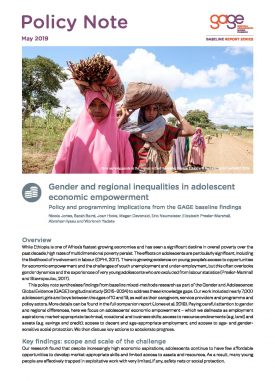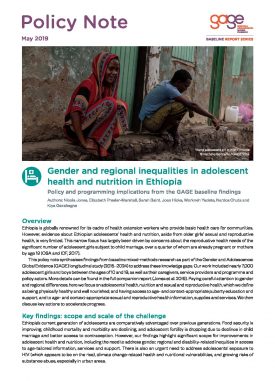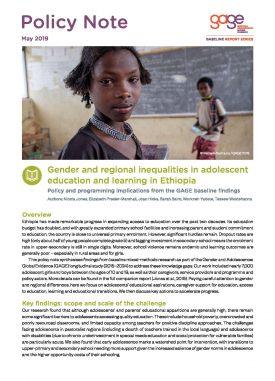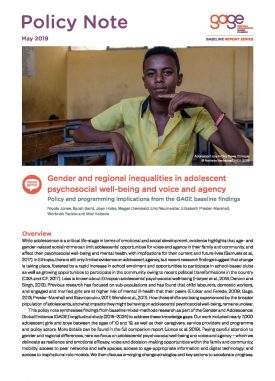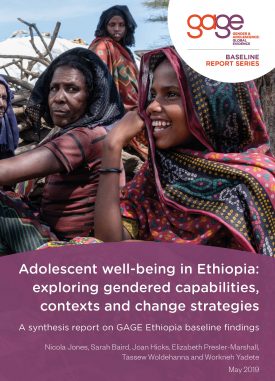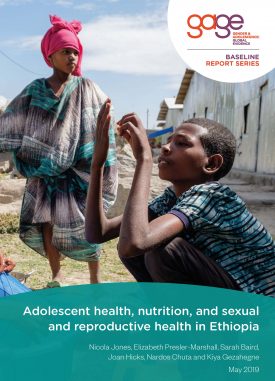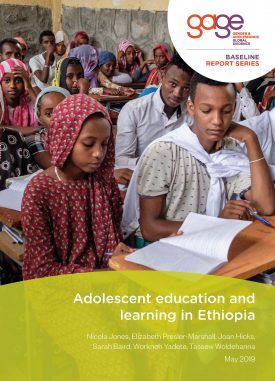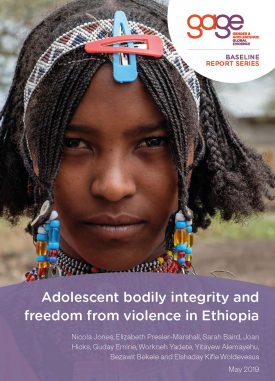The report on adolescent economic empowerment in Ethiopia presents findings from baseline mixed-methods research as part of the Gender and Adolescence: Global Evidence (GAGE) longitudinal study (2015–2024). Our research sample involves a survey with more than 6,800 adolescent girls and boys from two cohorts aged 10–12 years (younger adolescents) and 15–17 years (older adolescents), and more in-depth qualitative research with 240 adolescents and their families. The baseline data was collected in selected sites in Afar, Amhara and Oromia regional states and Dire Dawa city administration during 2017 and 2018.
We focus on: adolescents’ economic aspirations and the aspirations of parents for their adolescent children; the extent to which adolescents are able to acquire market-appropriate skills and access assets and resources needed for future economic empowerment; the availability of decent and age-appropriate employment; and access to age- and gender-responsive social protection. We pay particular attention to gender, regional and rural and urban differences, as well as differences between adolescents with disabilities and those without.
Key baseline findings
- Economic aspirations: Adolescent girls and boys alike have high aspirations for their future livelihoods, as do their caregivers.
- Market-appropriate skills: Although Ethiopia’s technical and vocational education and training (TVET) opportunities are expanding, uptake among adolescents is limited due to perceptions that TVET qualifications are less desirable, minimum grade requirements, and cost barriers.
- Access to assets and resources: In terms of control over one’s finances, adolescents reported low levels of control (just 12% reported controlling their own income).
- Access to decent and age-appropriate employment: Older adolescents are much more likely to be in work than their younger counterparts (in urban areas, 17% compared to 3%).
- Access to age- and gender-sensitive social protection: The government’s flagship social protection scheme, the Productive Safety Net Programme (PSNP) has important effects on household consumption and covers some of adolescents’ school related costs.
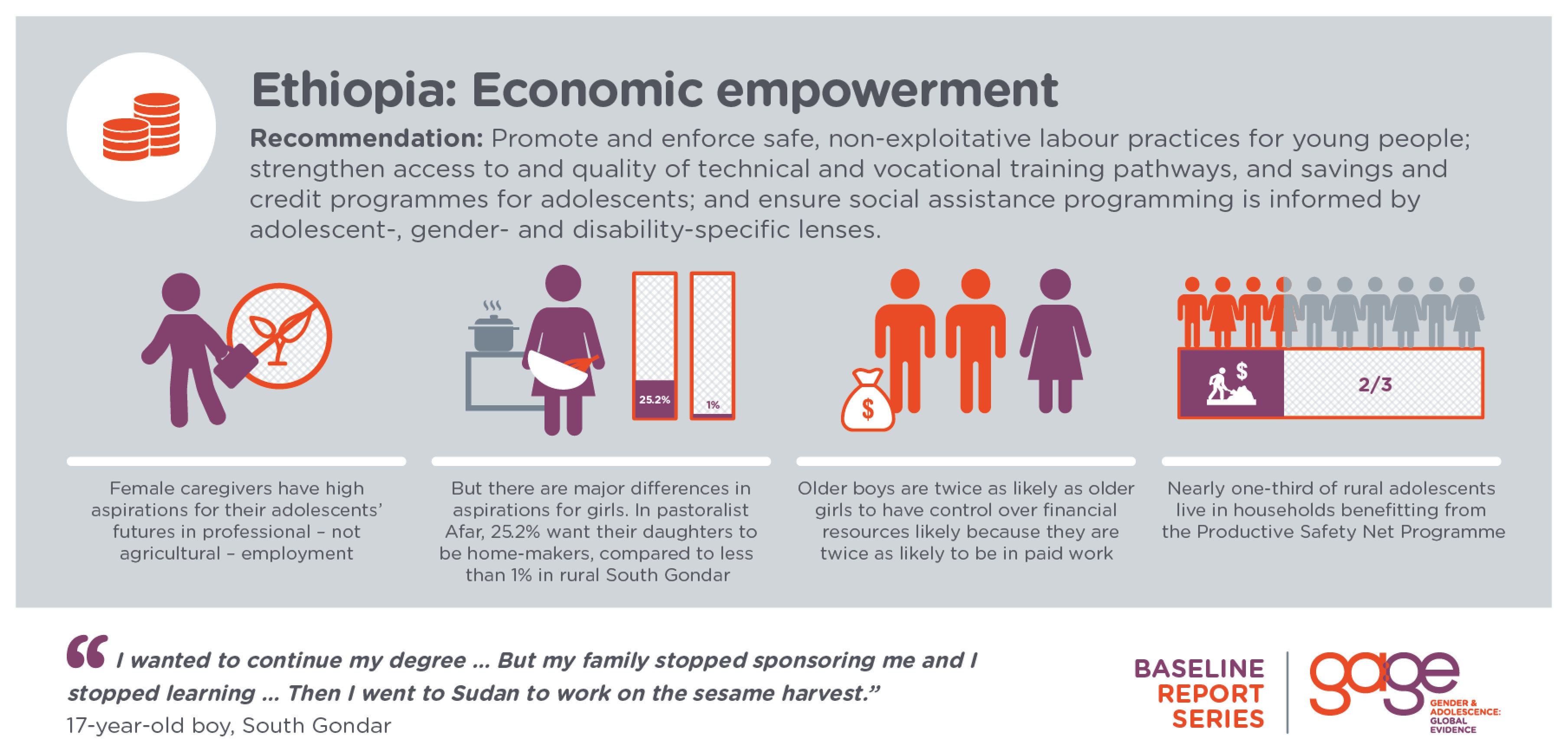
Suggested citation
Jones, N., Baird, S., Hicks, J., Devonald, M., Neumeister, E., Presler-Marshall, E., Iyasu, A. and Yadete, W. (2019) Adolescent economic empowerment in Ethiopia. Report. London: Gender and Adolescence: Global Evidence. (https://www.gage.odi.org/publication/adolescent-economic-empowerment-in-ethiopia/)
